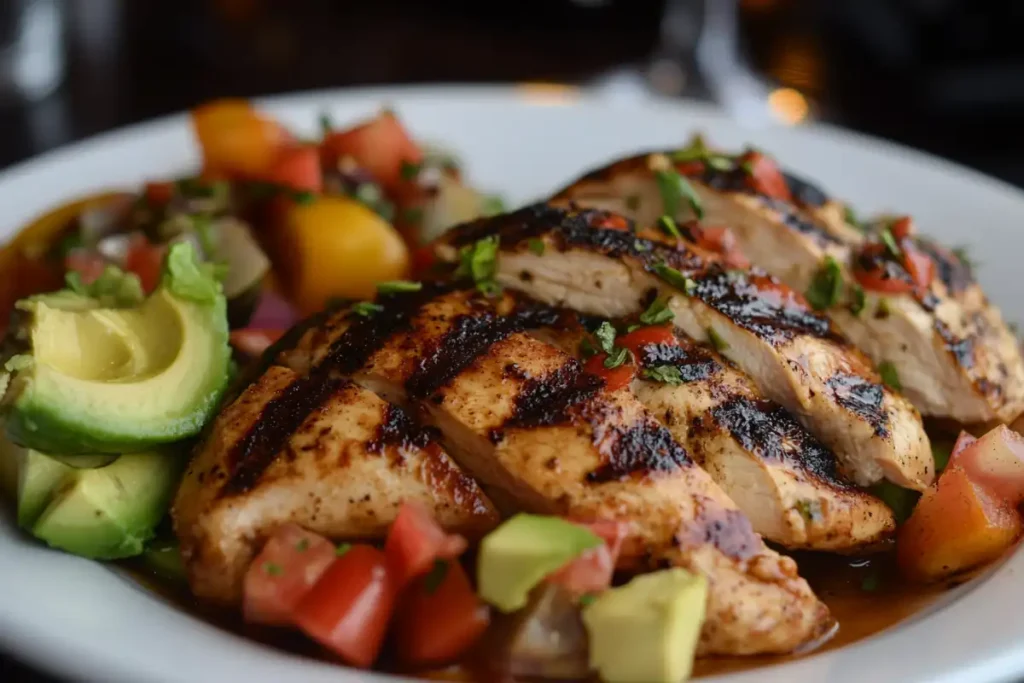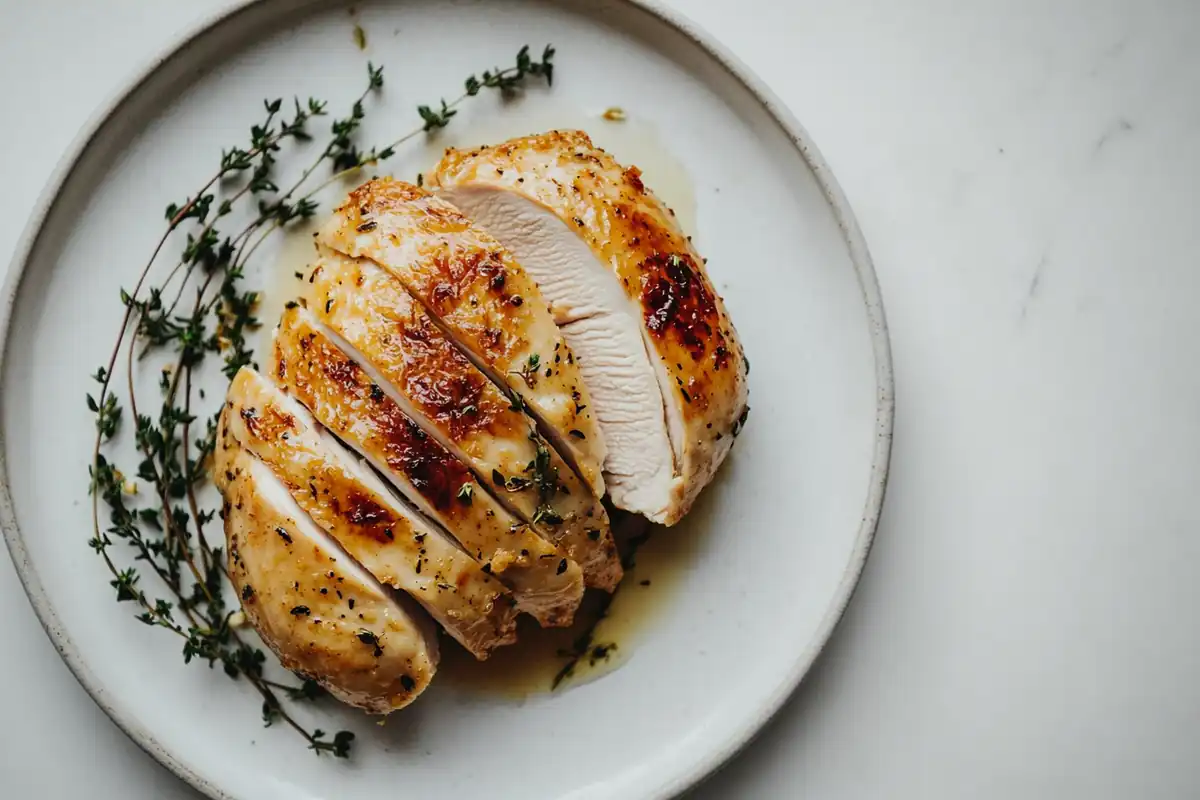Many individuals embarking on the ketogenic diet find themselves pondering the protein aspect. Specifically, the question often arises: can I eat unlimited chicken in keto? This comprehensive guide aims to dissect this query, delving into the role of chicken within a keto framework, exploring the concept of macronutrient balance, and providing practical advice on how to effectively incorporate chicken into your low-carb lifestyle. We will also discuss how much is too much, and the importance of a varied and nutrient-rich diet.
Table of contents
- The Foundations of Keto: Understanding the Diet
- Chicken as a Keto Staple: Why It Fits
- The Question of “Unlimited” Chicken on Keto: Is It Really Possible?
- Determining Your Optimal Chicken Intake on Keto: Finding the Right Balance
- Chicken and Ketosis: Maintaining the Metabolic State
- Chicken Variations and Culinary Ideas for Keto
- Can I Eat a Whole Chicken on Keto? The Realistic Perspective
- Practical Tips for Balancing Chicken on Keto
- Concluding Remarks: Chicken on Keto with Wisdom
- Frequently Asked Questions
The Foundations of Keto: Understanding the Diet
Before we can address the unlimited chicken question, it’s essential to have a solid understanding of the ketogenic diet. The keto diet is a high-fat, moderate-protein, and very low-carbohydrate eating plan. The primary goal is to induce a metabolic state known as ketosis. In ketosis, your body shifts from using glucose (derived from carbohydrates) to using ketones (derived from fats) as its main fuel source. This shift is achieved by significantly limiting carbohydrate intake and adjusting your macronutrient ratios to favor fats.
Core Principles of the Ketogenic Diet
- Drastic Carbohydrate Restriction: This is the cornerstone of the keto diet. Carbohydrate intake is generally limited to 20-50 grams per day. This limitation forces the body to deplete its glycogen stores and start breaking down fats for energy. The level of limitation varies between individuals.
- Moderate Protein Intake: While protein is essential for maintaining muscle mass and other bodily functions, it’s not meant to be consumed excessively on keto. Too much protein can be converted into glucose through a process known as gluconeogenesis, which can hinder ketosis. Therefore, protein needs to be in a moderate range.
- High Fat Consumption: Fat is the primary source of energy on keto, which is a shift from the regular diet. Healthy fats, such as those found in avocados, nuts, and olive oil, are encouraged. Increasing your fat intake is very important for the keto approach.
- Nutrient Balance: While limiting carbohydrates is a focus, it’s still vital to ensure you are getting a variety of essential vitamins and minerals. Balancing these aspects is very important for your long-term well-being. The focus should be on nutrient-rich foods.
- Individual Variability: It is also important to remember that requirements may vary between people. What is right for one individual may not be right for another. You must tailor your approach to your own specific needs.
Chicken as a Keto Staple: Why It Fits

A display of the varieties of chicken cuts available. Exploring different options is key for a satisfying keto plan.
Chicken is often hailed as a versatile and compatible protein source for the keto diet. Its low-carbohydrate content and high-protein profile make it a popular choice. Chicken provides the protein you need while fitting within the low-carb parameters of the diet. Its versatility in culinary use also makes it a very convenient option.
The Benefits of Chicken on Keto
- Virtually Carb-Free: Chicken contains almost no carbohydrates. This makes it an excellent choice for those limiting carbohydrates on keto. Its absence of carbs is crucial for maintaining ketosis.
- High-Quality Protein Source: Chicken is an excellent source of high-quality protein, which is essential for muscle maintenance and repair. Protein is also essential for other important functions in the body.
- Versatile Preparation: Chicken is incredibly versatile and can be prepared in many ways. You can grill, bake, roast, or use it in salads, soups, and a variety of other dishes. This makes it easy to integrate into your keto meals.
- Nutrient Rich: Chicken is not just protein–rich; it also provides key nutrients, like vitamins and minerals, that support your overall health. Therefore, it has an added benefit on top of its protein content.
The Question of “Unlimited” Chicken on Keto: Is It Really Possible?
While chicken is undoubtedly a compatible food for keto, the notion of eating unlimited chicken is not ideal or recommended. Moderation and balance are paramount on keto, and this applies even to low-carb options. Even though chicken is a great source of protein, consuming too much may have an impact on your diet. It is essential to remember the main principles of the keto plan.
Why “Unlimited” Chicken Is Not the Best Approach
- Protein Conversion: While protein is essential on keto, eating it in excess can lead to a process called gluconeogenesis. In this process, the body converts protein into glucose, which can interfere with your ketosis. Therefore, it is best to not consume too much.
- Individual Protein Needs: Your specific protein requirements will vary based on factors such as your weight, activity level, and specific health goals. A generalized “unlimited” approach does not account for these individual differences. You should always personalize your plan.
- Nutrient Variety: Relying solely on chicken as your primary source of protein can result in a deficiency of other essential nutrients. A well-balanced keto diet should feature a variety of foods. This will give you a wide range of vitamins and minerals.
- Calorie Considerations: Even though chicken is low in carbs, it still contains calories. Consuming too much can still lead to weight gain. Portion control is an important element even with low-carb options.
Determining Your Optimal Chicken Intake on Keto: Finding the Right Balance
The answer to how much chicken can you eat on keto is not a one-size-fits-all answer. It’s important to tailor your protein intake based on your personal requirements. The amount depends on many factors, and finding the right approach requires careful consideration of your specific goals. It is important to listen to your body and adjust as needed.
Steps to Calculate Your Protein Needs
- General Guidelines: A common recommendation is to consume between 0.8 to 1.0 grams of protein per pound of lean body mass. If you are not sure what that is, consider using online calculators.
- Activity Levels: If you exercise regularly or engage in intense physical activity, you might need to increase your protein intake slightly. The higher the activity level, the higher the protein requirement.
- Personal Goals: Your specific goals, such as weight loss, muscle maintenance, or muscle gain, will also impact your protein needs. Adjusting your plan to your specific goals is key for success.
- Consult Professionals: Additionally, you should consider consulting with a registered dietitian or a nutritionist to get a personalized macronutrient recommendation. A personalized plan is always the best approach.
Practical Methods for Portion Control
- Weigh Your Chicken: Use a food scale to weigh your chicken portions. This will help you be more accurate in tracking your protein intake. This also ensures you are sticking to your plan.
- Use Measuring Tools: Likewise, be accurate in measuring any sauces or other additions. This will also help you maintain your plan.
- Plan Your Meals Ahead: Planning your meals in advance ensures you are consuming the right amount of chicken and other ingredients for your keto needs. Meal planning also helps with maintaining balance.
- Eat Mindfully: Practice mindful eating techniques by paying attention to your hunger and fullness cues. Don’t overeat, and eat slowly. This will help you feel good.
Chicken and Ketosis: Maintaining the Metabolic State
The compatibility of chicken with the keto diet is clear. Can I eat chicken and stay in ketosis? Yes, you absolutely can, provided that you adhere to the macronutrient balance that is essential for the diet. This balance requires moderate protein intake, enough fat, and limited carbohydrates. This ensures you stay on your keto path.
Key Aspects of Staying in Ketosis
- Protein Management: Be mindful of your protein intake. Keep it within the moderate range. This balance prevents excessive protein from being converted into glucose.
- Adequate Fat Intake: Make sure you are consuming enough healthy fats. Fat is the primary fuel source on keto, so do not neglect this important part.
- Carbohydrate Limitation: Limiting carbohydrates is key to remaining in ketosis. Stay consistent with your low-carb plan.
- Monitor Your Progress: Consider using ketone testing strips or a blood ketone meter to monitor your ketone levels. This will help you ensure that you are in ketosis.
Chicken Variations and Culinary Ideas for Keto
Chicken is incredibly versatile. Exploring different variations and culinary techniques can keep your keto diet satisfying and interesting. There are endless options to explore for cooking chicken. It does not have to be boring!
Different Chicken Cuts and Their Benefits
- Chicken Breast: A very lean and protein–rich option. Chicken breast is a versatile protein source that is often included in keto meal planning.
- Chicken Thighs: Chicken thighs offer a higher fat content. This makes them a great option for keto diets. They can also be more satisfying due to the fat content.
- Chicken Wings: Chicken wings can be an indulgent treat when prepared with low-carb sauces. However, be mindful of the sauces you use, as some are high in carbs.
- Whole Chicken: Roasting a whole chicken is an excellent option for a family meal. You will have leftovers to make a variety of meals throughout the week.
Cooking Methods to Explore
- Grilling: Grilling is a healthy way to cook chicken. It also adds a unique flavor. This method is very compatible with the keto diet.
- Baking: Baking is another very convenient method that is ideal for keto dieters. This results in a tender and moist chicken.
- Roasting: Roasting chicken is easy and creates delicious and flavorful dishes. It is a great option that is also very versatile.
- Chicken Salads: Variations of chicken salad can be a refreshing and satisfying lunch. Just be conscious of mayonnaise and other additives.
Can I Eat a Whole Chicken on Keto? The Realistic Perspective
The idea of eating a whole chicken in one sitting may seem appealing, especially given its low-carb nature, but it is generally not compatible with a balanced approach to keto. Portion control is essential, even with low-carb foods, and a whole chicken is often too much for one meal. It is better to enjoy smaller portions of it.
The Downsides of Eating an Entire Chicken in One Meal
- Excessive Protein Intake: Eating a whole chicken can result in a very large amount of protein intake in one meal. This can potentially interfere with ketosis. This can also be difficult for your body to process.
- Calorie Overload: Eating a whole chicken can easily lead to a high calorie intake. This can hinder your weight loss goals. Even though chicken is low-carb, it still has calories.
- Digestive Concerns: Consuming a large amount of food in one sitting can strain your digestive system. This can result in discomfort, bloating, and other digestive issues. It is best to limit how much you eat in one meal.
- Lack of Balance: It’s essential to remember that keto is not only about protein. It’s important to ensure a well-balanced diet that contains fats, vegetables, and vitamins. It needs to be a harmonious mix.
Practical Tips for Balancing Chicken on Keto

A delicious keto meal example. It features grilled chicken with vegetables and avocado, to show a balanced approach.
To make the most of chicken while sticking to keto guidelines, follow these practical tips. Accordingly, you can enjoy chicken and be successful on your keto journey. These guidelines will help you plan your meals.
Prioritize Variety and Balance
- Include a Range of Proteins: Don’t just rely on chicken for your protein. Include other protein sources such as fish, beef, eggs, and other choices. This will help you obtain a variety of nutrients.
- Incorporate Low-Carb Vegetables: Pair your chicken with plenty of low-carb vegetables, such as spinach, cauliflower, and broccoli. These additions make a more satisfying meal and provide the nutrients that you need.
- Embrace Healthy Fats: Include sources of healthy fats, such as avocado, olive oil, or nuts, in your meals. This supports ketosis and adds to the overall satisfaction of the meal. You also need fat to feel full.
Mindful Consumption and Monitoring
- Listen to Your Body: Pay attention to your hunger and fullness cues. Eat when you are hungry, and stop when you are satisfied. Eating consciously is key for success.
- Track Your Intake: Maintain a food journal or use an app to keep track of your macronutrient consumption. It’s a great way to maintain balance.
- Adjust as Needed: Be flexible and adjust your protein, fat, and carbohydrate intake based on your body’s response. It is important to tailor your diet to your specific needs.
Concluding Remarks: Chicken on Keto with Wisdom
Can I eat unlimited chicken in keto? The answer, as we’ve thoroughly explored, is a resounding no. While chicken is a valuable protein source for the keto diet, consuming it in excess is not compatible with the principles of the plan. Moderation, balance, and conscious consumption are key to a successful and sustainable keto experience. You should have a good idea of how much chicken can you eat on keto, and limiting unnecessary intake.
Frequently Asked Questions
No, you cannot eat unlimited chicken on keto. While chicken is low in carbs and high in protein, consuming too much protein can hinder ketosis. Moderation and balance are essential. The key is to find a personal balance.
The amount of chicken you can eat on keto varies based on your individual needs and goals. Most people aim for around 0.8 to 1.0 grams of protein per pound of lean body mass. This is a general guide.
Yes, you can eat chicken and stay in ketosis. Chicken is a low-carb, protein–rich food that is compatible with the keto diet. However, it needs to be part of a balanced plan. Moderation and knowing your limits are essential.
Eating a whole chicken on keto, especially in one sitting, is not generally recommended. It leads to an excess of calories and protein. This could impact ketosis and also cause digestive issues. Portion control is key to success.

